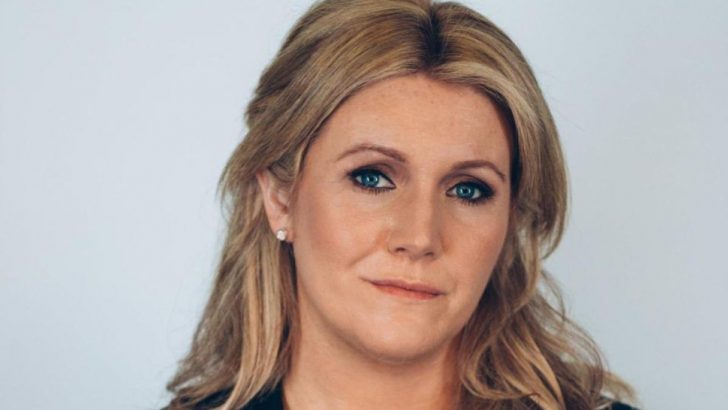The controversy over restrictions on religious services gained extra traction last week with an online petition, Bishops meeting Government and Christian pastors calling for change. It was a pity this didn’t happen at level 3 – it mightn’t have been an open door, but there would have been more hope.
On Lunchtime Live (Newstalk, Wednesday), presenter Andrea Gilligan explored the matter in a very open and cheerful way. She spoke to Fr Chris O’Donnell who had a very reflective and moderate approach. He was conscious of the comfort, nourishment and sense of belonging people got in church, and stressed that churches had created very safe spaces.
He spoke of how downhearted parishioners were at the last Mass before level 3 restrictions kicked in, but realised that we had to be willing to make sacrifices in a pandemic.
While regretting the limited numbers at funerals, he had adopted the technology for online Masses but felt nothing trumped being able to gather as a community. Gilligan suggested that the gathering was what the public health authorities were trying to discourage.
All callers were bothered by not being able to go to Mass – one woman sorely missed being able to receive the Eucharist, and found churches very strict and safe when Mass had been taking place.
Protection
Later that day on The Hard Shoulder (Newstalk), Maria Steen made a cogent case for easing restrictions. Considering the constitutional protection, she said, you’d need serious evidence that the religious services were a threat and she wasn’t seeing that evidence. A lawyer herself she saw the new laws as criminalising some religious activities, e.g. a priest leaving home to say a Mass that wasn’t just online. She hoped this was unintentional and stand-in presenter Mark Cagney didn’t believe the Government would do such a thing.
I’m not sure how wise it was for her to ask Cagney if he was religious, but he deflected that one. However, he didn’t seem to get the centrality of communal worship and became quite animated about it: “Our relationship with our God is something that we can conduct on our own, we don’t actually have to go someplace to do it and we don’t need the ritual.” Things were getting prickly at this stage, but thankfully it ended on a conciliatory note, with Cagney saying he understood how important it was to raise the issue and wishing Steen well with her efforts.
On Today With Claire Byrne (RTÉ Radio 1, Thursday), stand-in presenter Phillip Boucher Hayes interviewed Anthony Staines, Professor of Health Systems in the School of Nursing, DCU and John Ahern, spokesperson for Irish Churches Together Group, prompted by that representation to Government from 70 Christian pastors.
Professor Staines said he would “love to be able to go to Mass on Sundays”, but thought the risks were too high. He did appreciate Ahern’s concerns and agreed with him that it shouldn’t be an either/or between mental and physical health. Ahern had the “height of respect” for the Government’s efforts to combat Covid-19, but he could see unintended consequences in terms of isolation and the hope and community needed.
He quoted the Bible verse “man does not live by bread alone”, whereupon Boucher Hayes countered with “when two or three are gathered together in my name”, asking, rather disingenuously I thought: “Is Jesus not saying you don’t need a church?”
Interview
That same day, the News at One (RTÉ Radio 1) featured an interview on the issue with Archbishop Eamon Martin. He said coming together to worship, pray and support each other was “fundamental to what we are as a Christian community”. As part of a delegation from the Catholic bishops he had met with An Taoiseach Micheál Martin. He felt they had got a respectful hearing and hoped their concerns would be brought to the Cabinet.
He couldn’t understand the imposition of blanket restrictions at level 3 without “any meaningful consultation” with religious leaders.
By contrast an ongoing engagement with the civil authorities had happened in the North. Presenter Bryan Dobson wasn’t sure but he thought services could go ahead in the North, and that the Republic was one of the only, if not the only, country in the EU where religious services were “restricted and banned” in this way.
I think more needs to be made of our questionable ‘uniqueness’ in this respect, and of the constitutional protection for religious freedom.
Pick of the week
Silence
BBC Two, Saturday, November 7, 11.20pm
(2016) Andrew Garfield, Adam Driver, Liam Neeson. Martin Scorcese’s film about missionaries in Japan in the 17th Century. Disturbing, challenging and violent. Ambiguous towards religious faith.
Sunday
BBC Radio 4, Sunday, November 8, 7.10am
William Crawley takes a look at the ethical and religious issues of the week.
Vaticano
EWTN, Sunday, November 8, 8.30 pm; also Tuesday, November 10, 2.30 pm
Presenting the latest news from the Vatican, highlighting the Rome Film Festival and the Renaissance of Baroque.


 Brendan O’Regan
Brendan O’Regan Andrea Gilligan presents Lunchtime Live on Newstalk
Andrea Gilligan presents Lunchtime Live on Newstalk 